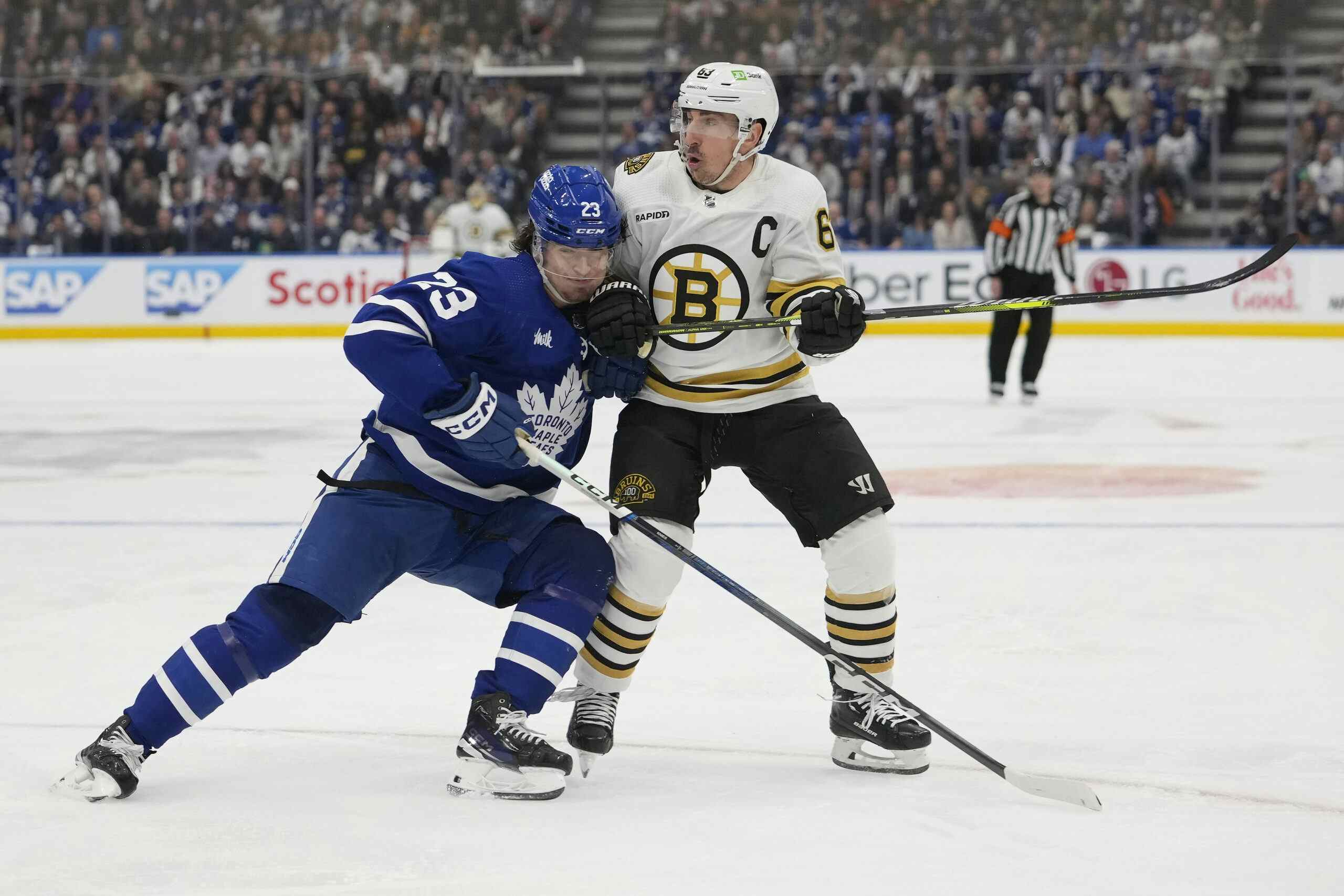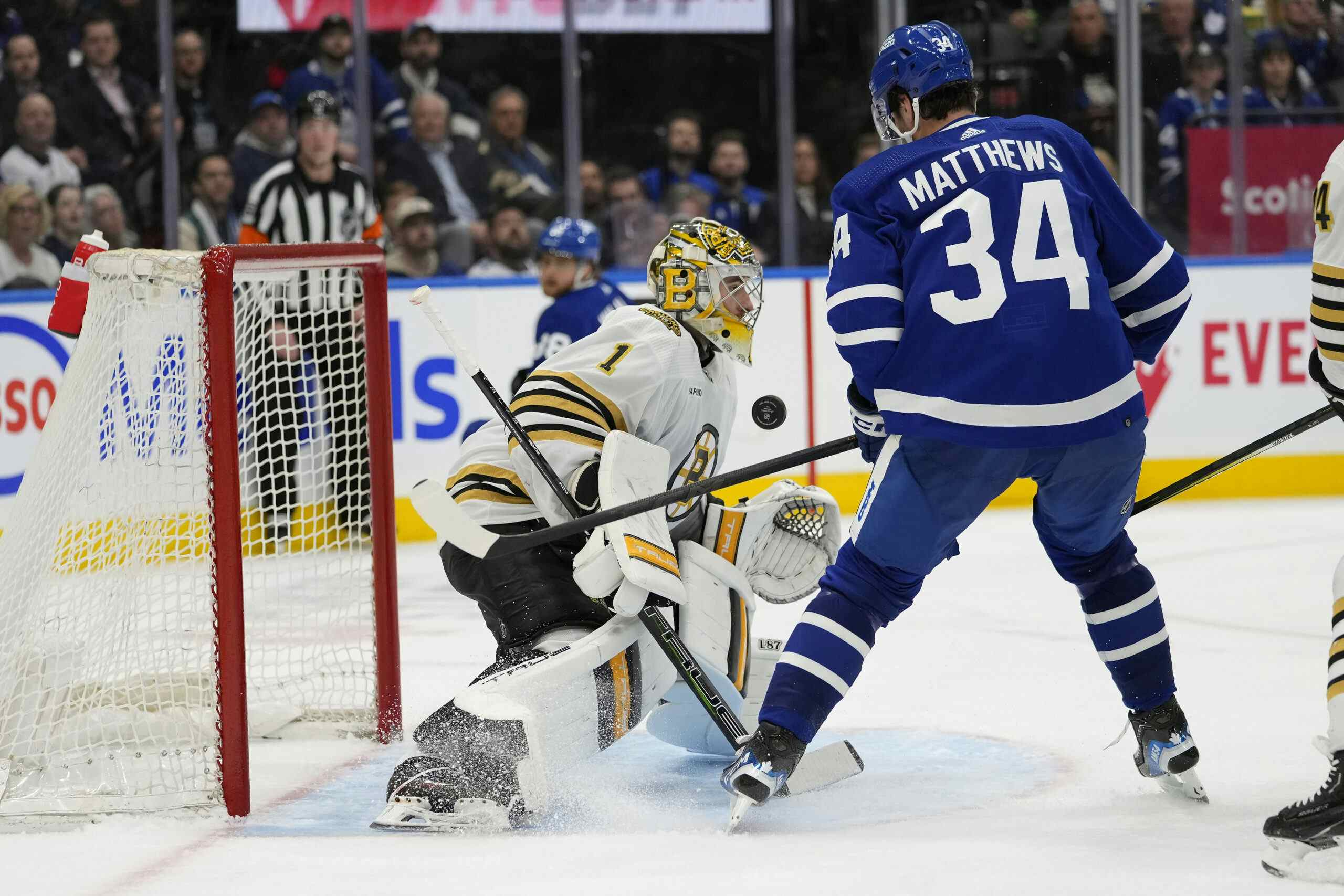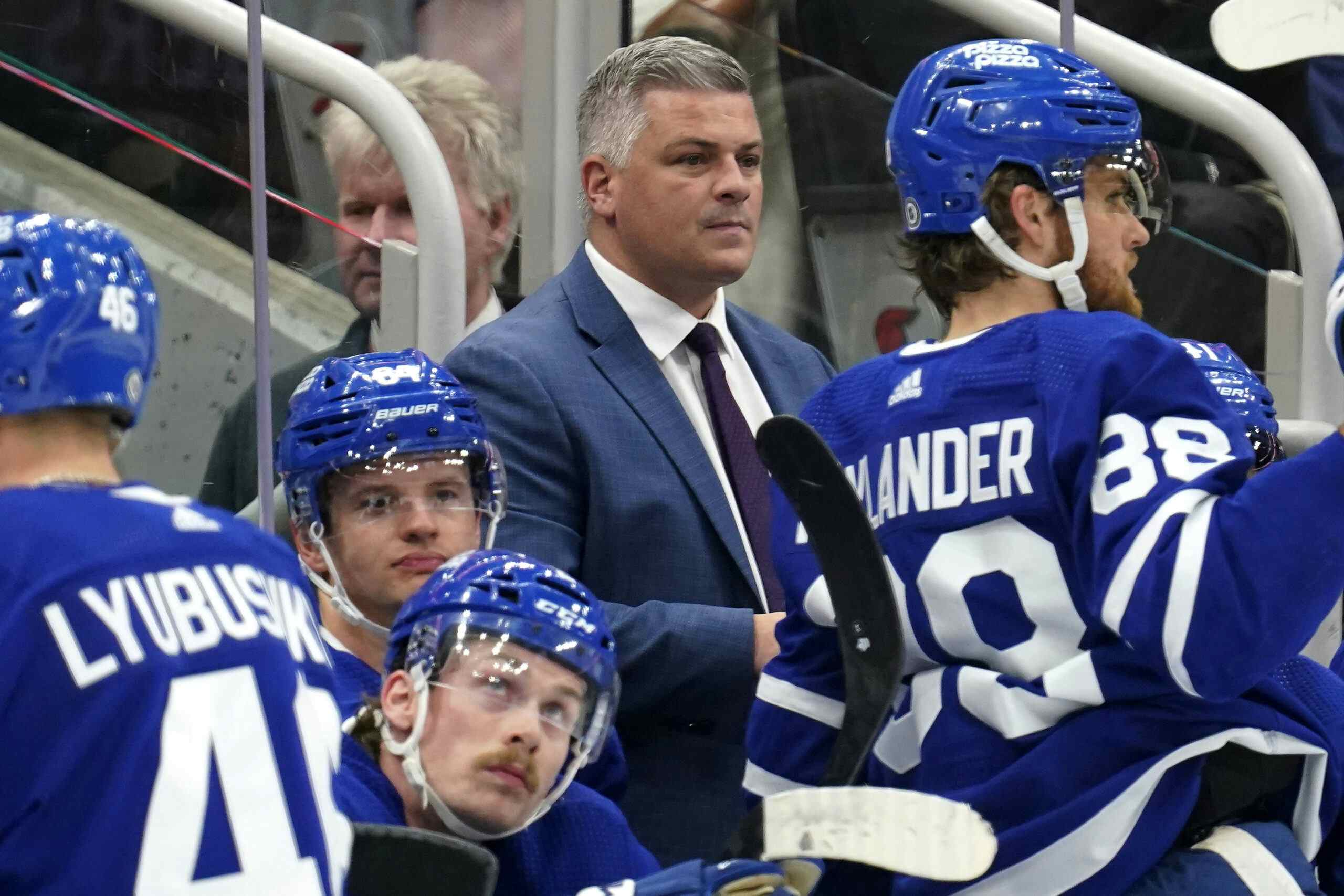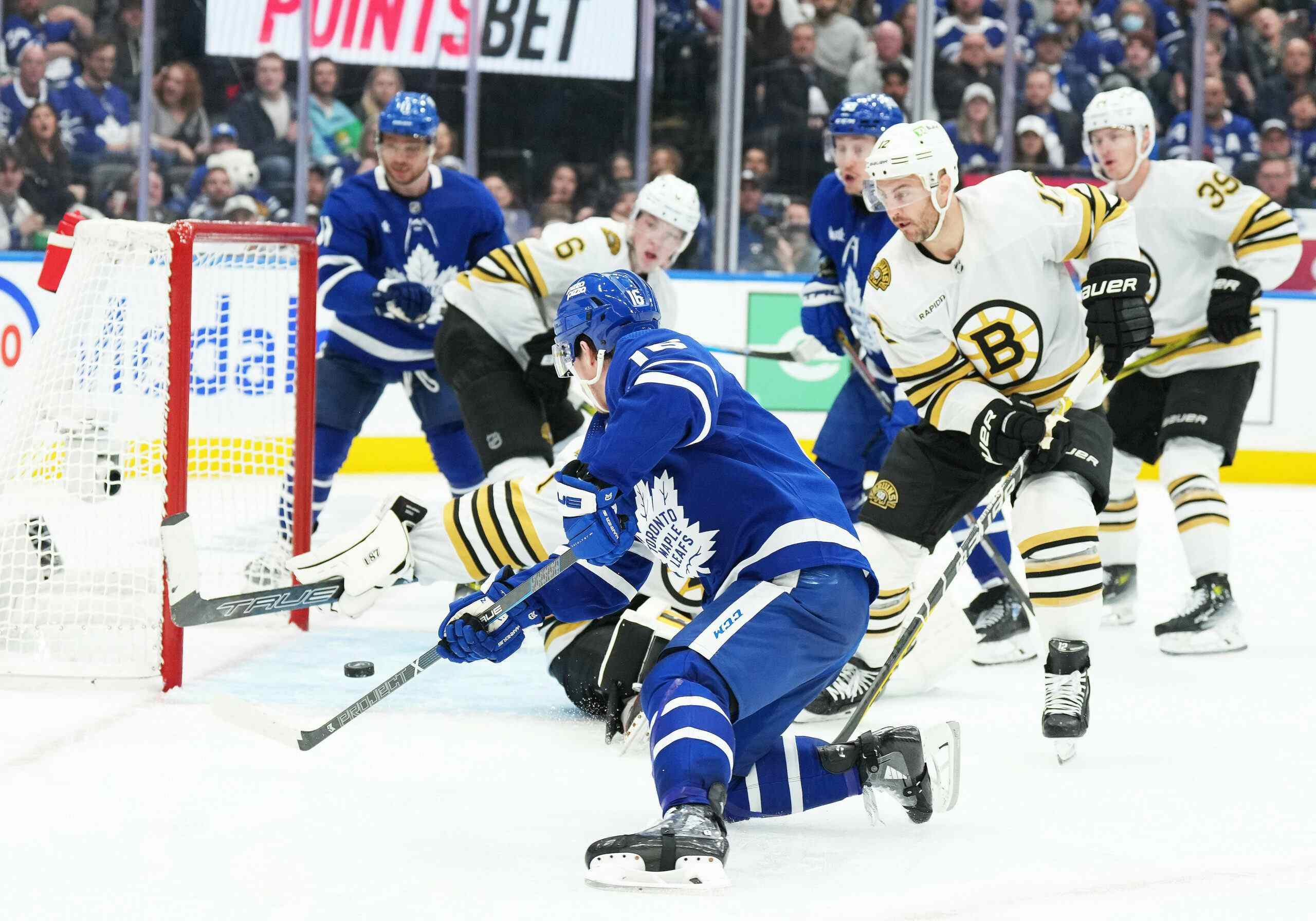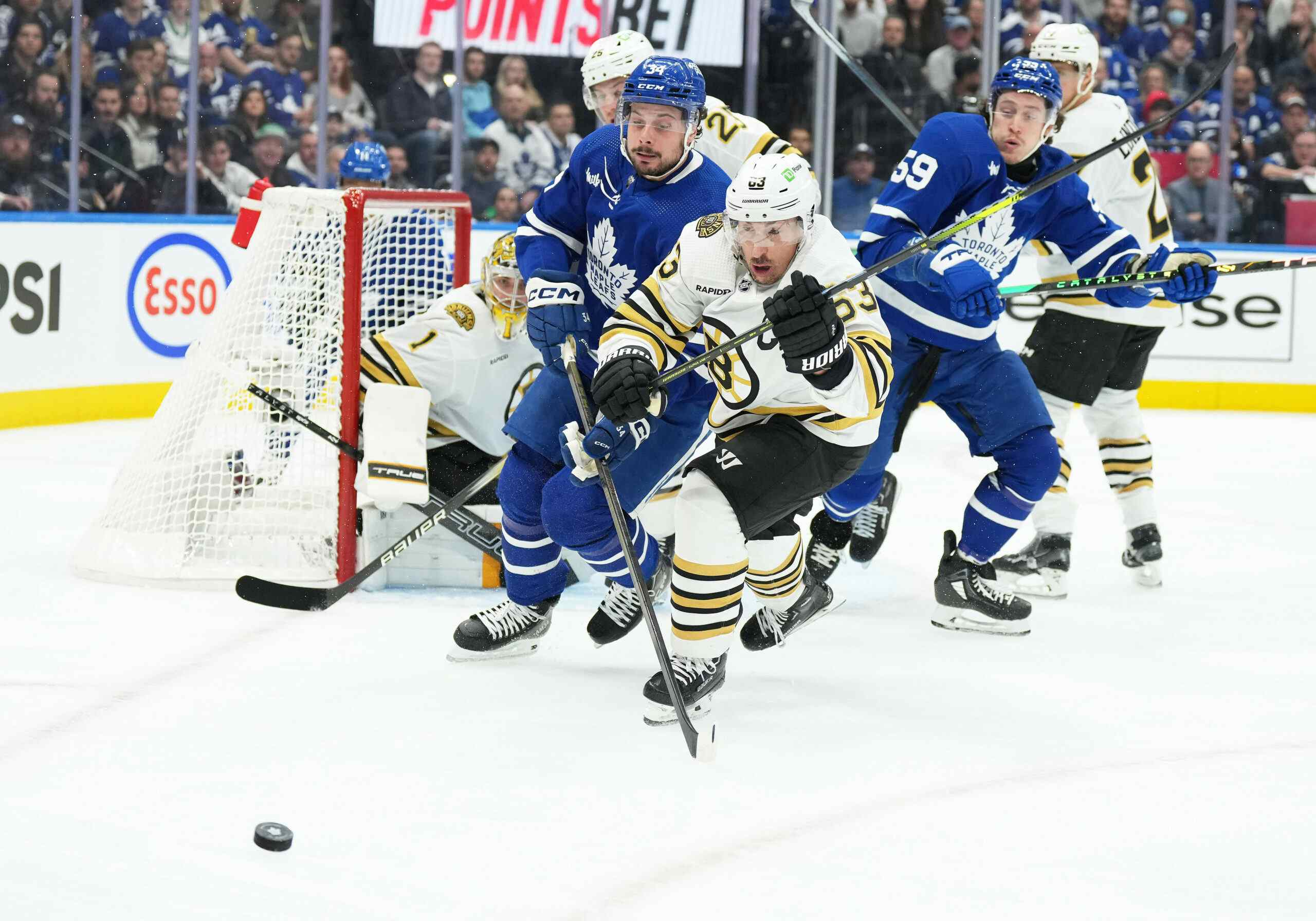No Matter How It Ends, Bozak Leaves Mark On Leafs’ History
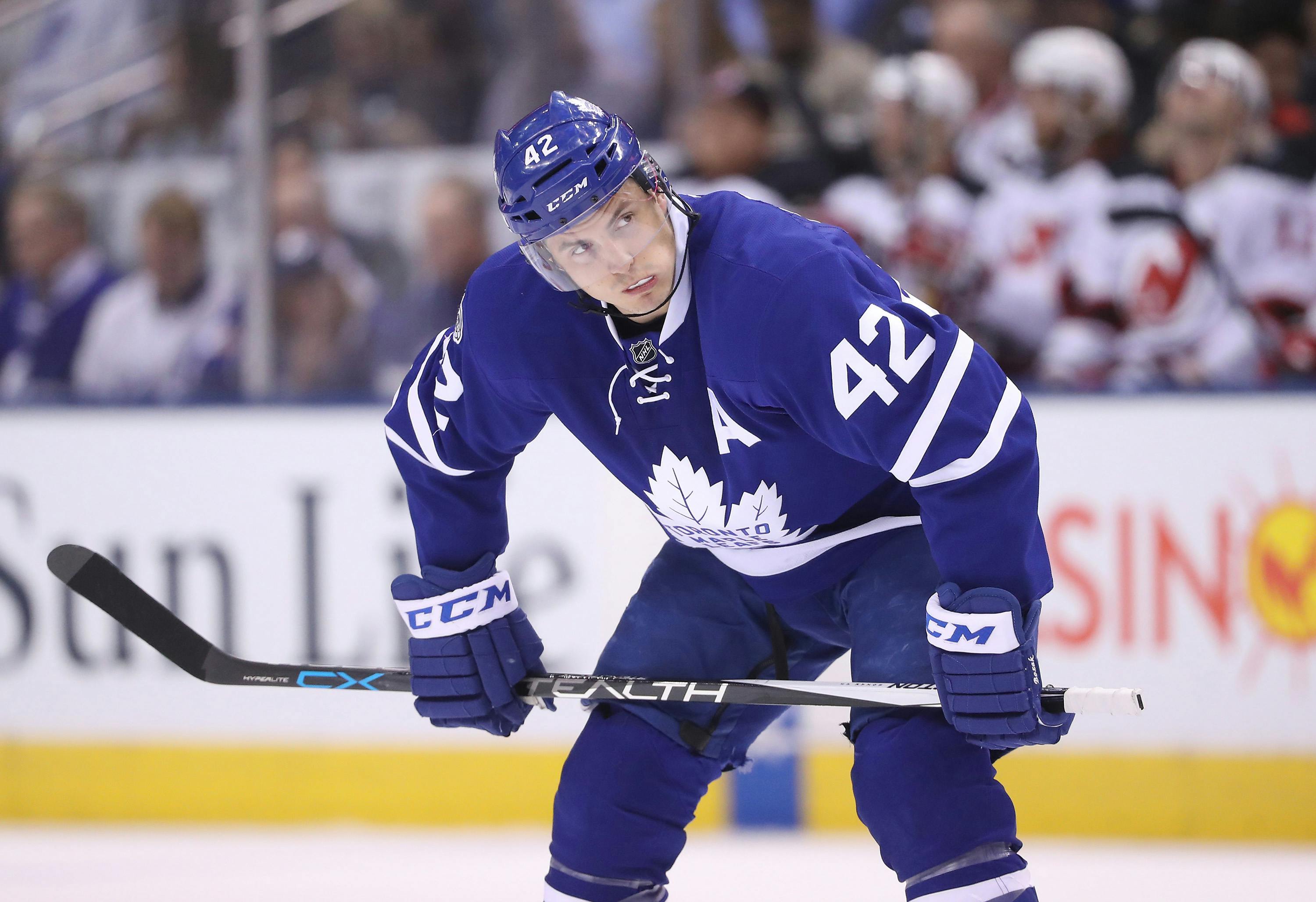
By Greg Brady
7 years agoMost of us have already issued a general mea culpa to not only Tyler Bozak, but his close friends and relatives also. It couldn’t have been easy for him here, for a good chunk of his time.
I rarely believe athletes when they say they’re able to tune it all out, not read the bad reviews, not hear the heckles during quiet moments of regular season home defeats (there have been more than a few during Bozak’s time here). Rock stars still occasionally bristle publicly at a bad concert review from a critic, or a famous actor from a film being panned. Yes, the old adage that it’s “better to be talked about than not talked about” is probably true in most walks of life, but I have my doubts I could shut it all out as a pro athlete, as I am in my current career — it takes time to thicken the skin, but those of who do never regret the processing of doing it, especially in 2017 when everyone’s a critic, everyone has a platform, and everyone thinks their voice counts the same as another, regardless of their expertise on a subject.
Bozak has endured, and he has matured, and he has developed that proverbial thick skin, but he’s also getting to enjoy the fruits of his labour. As miserable as it is to play hockey in Toronto (well, “miserable” within reason, right?) when things are going terribly, it’s an amazing amount of fun when things are going well.
So last night, when Bozak wins Game 3 over the now not-so-high and less-than-mighty Washington Capitals late in a power-play chance with a well positioned and timed tip-in off a Nazem Kadri pass, it made me realize a couple things about his past, present, and future.
We’re all guilty of this in pro sports, as it takes time to realize it’s not necessarily where you came from that determines where you go. I couldn’t have been the only one skeptical of Brian Burke’s NCAA free agent frenzy, bringing in Bozak, Christian Hanson, and Brayden Irwin all within the span of twelve months. Burke claimed, for all intents and purposes that each one was like getting another first-round pick, which doesn’t necessarily ring true immediately when you consider that each player was passed over 210 times in THREE different years in various NHL Entry Drafts.
But though it was quite fair to be skeptical of Hanson (42 NHL games, 9 points) and Irwin (2 NHL games, no points), Bozak was quite distinct in his achievements.
As a 23-year old rookie, Bozak got into 37 games in 2009-10 on the terrible Maple Leafs team that finished 29th of 30 teams (and of course, with no reward for doing so, given the Phil Kessel acquisition that fall). But by being gifted minutes on a very offensively-challenged team, he provided a modestly impressive response, with 8 goals and 19 assists, averaging 19:14/game. He’d be forgiven for being excited to play in the NHL and yet also determined to not be negatively impacted by the atmosphere, given the first-ever game he played (a 4-1 loss to Colorado that dropped the Leafs to 0-6-1), the team was already gasping for air, and fans were looking for targets to aim vitriol at.
Over the next few seasons, Bozak found a home as Phil Kessel’s centre, in what invariably would be classed as the Leafs’ “top line”, despite stretches where a Kulemin-Grabovski-MacArthur combination was the team’s most potent offensive unit. The challenge became almost a reversal of what was constantly discussed internally with Leafs management, the same way it was on sports talk radio and newly-created Leafs-centric blogs — how Toronto finds Mats Sundin some wingers good enough to play with him (Alex Mogilny arrived at age 32) had now become how Toronto finds Phil Kessel a centre good enough for a sniper of his calibre on the right wing.
There was a brief experiment with Matt Stajan and a more brief one with Mikhail Grabovski, but neither stuck, and Bozak practically earned the assignment by default. While joined by Joffrey Lupul for large chunks of the next couple seasons, Bozak and Kessel found a (rather) permanent linemate in James van Riemsdyk when he was swindled out of Philadelphia, in exchange for Luke Schenn. But it’s here that the criticism of Bozak really developed into something quite aggressive and emotional.
The lockout-shortened 48-game season saw reasonably proficient production for the JVR/Bozak/Kessel line (the three were among the top four forward scorers for the Leafs in 2013), but Bozak became identified not only as the weak link on that line (and talent-wise and pedigree-wise, that was a tough point not to agree with) but the old-schoolers hated his inability to finish around the net (or so it seemed, despite a 19.7% shooting percentage) and the new-schoolers were horrified by the entire line’s puck possession numbers (none of Bozak, JVR, or Kessel were even at 47 percent in terms of Corsi rating).
Bozak’s rep as a defensive forward and a “good checker” was blown to bits night after night when it seemed the Leafs most-skilled line was chasing the puck, and their collective tails. Especially on the road, it felt like the “Kessel line” was overmatched by rival coaches by sending out their own top lines, because let’s be honest, Sidney Crosby or Joe Thornton or Jeff Carter or Ryan Getzlaf, or Nick Backstrom, or….(yes, enough, I agree!), but despite Bozak’s well-deserved credit for being excellent on faceoffs, doing well in shootout attempts, and being “buddies” with Kessel, still left many Leafs fans feeling like the team was better off moving on in the 2013 offseason, especially given there was demand for some new faces and fresh pairs of skates following the heartbreaking seven-game loss to Boston.
Yet, in what seemed a summer of calamitous events (a Grabvoski buyout that smelled of a demand straight from head coach Randy Carlyle, a mega-expensive overpayment in term and AAV for David Clarkson, a seemingly unnecessary trade for Jonathan Bernier, and the trade for two-time Cup champ David Bolland, who the Blackhawks needed to move based on future cap considerations), a Tyler Bozak extension on the opening of free agency (Friday, July 5, 2013) for five years at $4.2 million a year seemed to be the strangest one of all.
Bozak’s name had constantly come up in trade rumours with the Leafs, not necessarily because other teams coveted Bozak, but seemingly more because the Leafs would offer Bozak in deals where there eventually would be no consummation because they valued what he did more than what other teams in the league did.
Though injured and unavailable for Games 6 and 7 of the Bruins series, Bozak was viewed by many as expendable. Matt Frattin and Joe Colborne had both been developing and were in need of minutes a player like Bozak (who we all felt like we knew what he was and what he wasn’t) was eating up, and not very efficiently at that.
The Bozak extension also played into a lot of emotion at the fact Carlyle seemed oblivious to obvious player deployment decisions (like Game 1 of the Bruins series and playing Frazer McLaren and Colton Orr while Colborne and regular top-six forward Clarke MacArthur were healthy scratches).
Fans were disappointed in so many of these moves that summer — let’s face it, if you liked James Reimer (and he really did drag a not-good hockey team, getting pounded nightly in February and March in terms of actual shots and puck possession, to the playoffs), you didn’t see a need for surrendering assets for Bernier. If you liked Grabovski (signed for four more seasons), you didn’t see the overwhelming need to rent David Bolland for one season. The David Clarkson signing spoke for itself, you either loved it or despised it, and we knew quite early there was a right side and wrong side of that one to be one.
But the Bozak extension seemed like the cherry on top of a bad group of management decisions, and despite injuries to Bernier, and longer-term to Bolland, the Leafs proved some of the criticism valid by losing twelve of their last fourteen in spring 2014 to miss what, at one point, seemed a sure playoff spot, and facilitated the hiring of Brendan Shanahan as team president, meaning borrowed time for many in Leafs management and on the coaching staff.
At the end of the dreadful 2014-15 season, which included Salutegate, the firing of Randy Carlyle and implementation of Peter Horachek, and several different Phil Kessel dressing room rants or meltdowns, few players seemed safe, least of all Bozak. All that despite full health in all 82 games, 23 goals and 26 assists, and yet the trademark terrible possession numbers and for the old-schoolers, a brutal -34 plus/minus (for what it’s worth, the JVR/Bozak/Kessel line was a combined minus -111 on the season). You don’t have to love the statistic in and of itself, but that’s not nothing when that happens – it IS something.
But under Mike Babcock beginning in fall 2015, Bozak survived and seemed to thrive – players like himself, Nazem Kadri, Jake Gardiner, and James van Riemsdyk have all thrived at various distinctions in this, Babcock’s second season. So has Leo Komarov — and maybe it’s no coincidence, those are the only five position players remaining from the ill-fated 2013 Leafs team that lost against Boston.
And yet, had Bozak been traded at this year’s trade deadline, even with the Maple Leafs battling for playoff contention, there probably wouldn’t have been an outcry. Bozak wouldn’t have been traded out of spite, or to appease the fanbase, or because “he sucks”, but because you can get an asset for an asset, much like they did with almost every veteran player not bolted down at the 2016 Trade Deadline.
But no matter how this Caps/Leafs series does end (oddsmakers have the teams at almost identical odds to win the series, even with the Leafs a game closer to advancing), Bozak with the overtime winner has provided a valuable moment in this franchise’s history. No, neither his goal or even Kasperi Kapanen’s in Game 2 Saturday matches Lanny in 1978 or Gilmour or Wendel’s overtime magic in 1993, but it is possible, at least for a few more days, that the potential is there for both those goals put past Braden Holtby to springboard the Leafs to do something as notable.
No one knows how it ends for Bozak here — but the run for him under Mike Babcock has made it fairly clear that Bozak with reasonable contract demands (either now or before he gets to free agency in summer 2018) may yet sign another Leafs contract, an unthinkable notion a couple seasons ago, or if he does leave or is traded (even as swiftly as this offseason) it won’t be a departure of ignominy. He’s a proven NHLer — the things he doesn’t do well aren’t below-par enough to have sealed his Leafs fate or NHL future, and the things he does do well enough (some through evolving and adapting as his career has moved on) should keep him in an NHL uniform for at least a few more years to come, in Toronto or elsewhere.
Again, we’ve all made our peace that we overstepped on maligning Bozak — he didn’t ask for some of the hefty responsibilities granted him, and after a few of the myths were destroyed (you know, good checker, solid defensive player), he seems to have not only improved on aspects of his all-around game (a plus-possession player since Babcock arrived), but on a very young team, players like he and van Riemsdyk may provide notable intangible value. They’ve seen what it’s like to be a Leaf at it’s most difficult and frustrating points. With a little luck and much continued growth, they won’t have to live it again here.
Recent articles from Greg Brady

